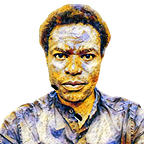Fulgencio Batista
Essay by Oscar Auliq-Ice
Fulgencio Batista was a Cuban politician and military leader who rose to power in the 1930s and ruled the country intermittently until 1959. Batista’s time in power was characterized by corruption, repression, and human rights abuses, leading to his eventual overthrow by Fidel Castro and the Cuban Revolution.
Born in 1901 in Cuba, Batista began his career in the military and quickly rose through the ranks. In 1933, he orchestrated a coup against the elected government and became the de facto ruler of Cuba. During his first stint in power, Batista implemented policies that favored the wealthy and powerful at the expense of the poor and working-class. He also engaged in widespread corruption and human rights abuses, including censorship, torture, and extrajudicial killings.
Batista was ousted from power in 1940 but returned to politics in 1952, staging another coup and seizing power once again. This time, he ruled with an iron fist, clamping down on dissent and opposition and continuing his corrupt and oppressive policies. His regime was marked by economic inequality, political repression, and human rights abuses, leading to widespread dissatisfaction and unrest among the Cuban people.
In 1959, Fidel Castro led a successful revolution against Batista’s regime, overthrowing the dictator and establishing a socialist government in Cuba. Batista fled the country and lived in exile until his death in 1973.
While Batista is often remembered as a brutal dictator, his legacy is more complicated than that. He was a complex figure who played a significant role in Cuban history, for better or for worse. On the one hand, he was responsible for many of the atrocities committed during his time in power, and his regime was marked by corruption and repression. On the other hand, he also oversaw a period of economic growth and modernization in Cuba, and his policies helped to establish the country as a major player in the Caribbean region.
Ultimately, however, Batista’s legacy is overshadowed by the revolution that overthrew him and the socialist government that followed. While his rule was marked by corruption and repression, the Cuban Revolution represented a new beginning for the country, a chance to build a more just and equitable society for all Cubans. Today, Batista is remembered as a cautionary tale of the dangers of authoritarianism and the importance of democracy, human rights, and social justice.
Copyright © Oscar Auliq-Ice
